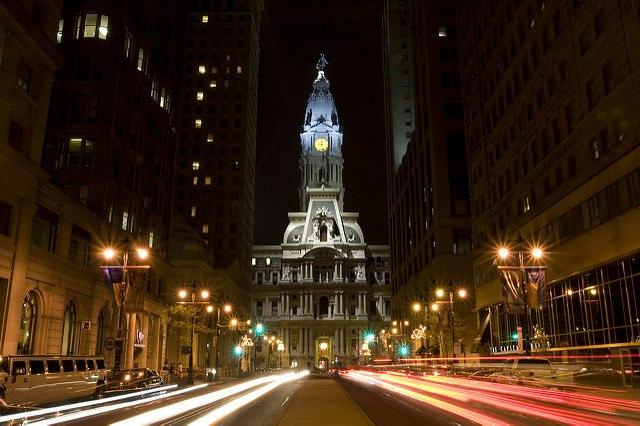
Historically, the labor and environmental movements have not seen eye-to-eye. As progressive magazine The Nation showcased a few years ago, disagreements between blue-collar workers and the green crowd were manifest in the ongoing debate over the Keystone XL Pipeline. Large energy companies exploited this divide as they suddenly became friends of unionized workers in the fight to build the pipeline from the Canadian tar sands through America’s heartland. The conflict is ongoing, with both sides clashing over Tom Steyer’s initiative to boost voter turnout in key battleground states during this election. His ulterior motive, in the view of organized labor leaders, is to enact an agenda that could cost even more workers their jobs.
But pipelines or no pipelines, the U.S. has plenty of work to do in order to repair and bolster its creaky infrastructure. While the Obama administration’s American Recovery and Reinvestment Act was arguably a solid attempt to repair roads and build new infrastructure projects, many critics insisted it did not go far enough. At a time when manufacturing jobs are still on a downward trend, a glance at many highway interchanges, rail yards and seaports suggests that more could be done.
To that end, the United Steelworkers union and Sierra Club have joined forces, the organizations announced last week. The plan? Create a new framework for international trade and infrastructure investment that both groups hope will become central within the Democratic Party’s platform when it convenes in Philadelphia next month to nominate Hillary Clinton for president.
Such a coalition makes sense. On international trade, unions see huge potential for high-paying skilled jobs to leave the U.S. for countries where job protections are weaker and wages are far lower. Environmentalists add that the manufacture of goods overseas can result in environmental degradation that would not have been possible in North America or Europe, where regulations are more stringent. The trick on this front is to find that middle ground, though in reality plenty of mothballed factories and brownfield sites exist where products can once again be assembled.
Finding common ground should also be easy when it comes to bolstering infrastructure across the country. More young professionals and empty nesters are eschewing suburban sprawl and huge houses for condos and apartments in the center of what are becoming revitalized “smart cities.” Between the repairs for rickety public transportation systems and new investments in clean-energy and energy-storage technologies, a focus on repairing things here -- rather than allow even more cheaply-made goods from overseas -- would benefit citizens of all demographics and economic backgrounds.
More rebuilding in cities would make them more appealing and would limit the spread of suburbs and exurbs. This, of course, would mean more action taken to stem the risks of climate change. The trick, however, is to prevent these cities from becoming the playgrounds of highly-paid tech and finance workers. We must ensure they are welcoming and affordable to all — the way cities like San Francisco, New York, Detroit and Cleveland were for a generation after World War II.
Finally, the adoption of such a plank within the Democrats’ platform would strengthen Hillary Clinton’s campaign. A display of openness to bold ideas instead could help overshadow a reputation for cold and calculated poll-watching that has sidelined her in the past. Furthermore, this would extend an olive brand to the likes of those who supported Bernie Sanders and Donald Trump. Trump has caught the affection of many blue-collar workers, who feel they have been both screwed and ignored by the system — even though the evidence suggests he hardly has a stellar record when it comes to fairness in the workplace. While Trump’s campaign is more meltdown than fire as of late, it could change its dynamics on a dime.
Bringing together workers and environmentalists in Philadelphia, and a commitment to sustainable development and decent paying jobs, could help the Democrats extend their lease on 1600 Pennsylvania Avenue for another four years at a time when American politics have shown little more than vitriol and divisiveness.
Image credit: Michael Righi/Flickr

Leon Kaye has written for 3p since 2010 and become executive editor in 2018. His previous work includes writing for the Guardian as well as other online and print publications. In addition, he's worked in sales executive roles within technology and financial research companies, as well as for a public relations firm, for which he consulted with one of the globe’s leading sustainability initiatives. Currently living in Central California, he’s traveled to 70-plus countries and has lived and worked in South Korea, the United Arab Emirates and Uruguay.
Leon’s an alum of Fresno State, the University of Maryland, Baltimore County and the University of Southern California's Marshall Business School. He enjoys traveling abroad as well as exploring California’s Central Coast and the Sierra Nevadas.














